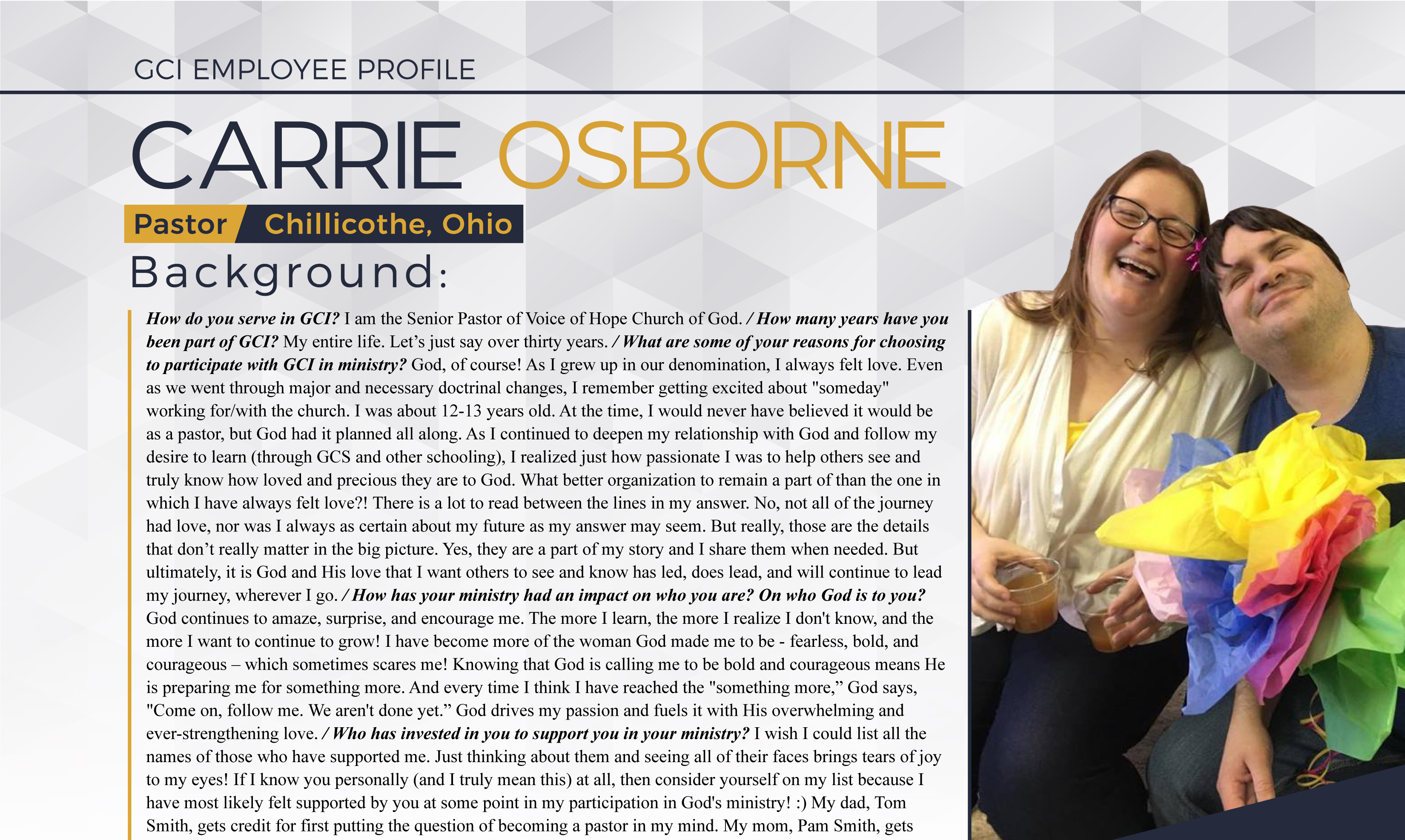In our last issue, we published an article from GCI President Dr. Greg Williams entitled Readiness. We received quite a bit of feedback including the question below. GCS President Dr. Gary Deddo graciously wrote the following response and agreed to publish it for the clarity of our readership.

Question:
I just read the article “Readiness” in the GCI Update and that brought up a question in my mind. I was told that a person can repent AFTER death and receive salvation. I do not understand that in what I read in the Bible. Is that a belief of GCI? If so, how does that differ from universalism?
Gary’s response:
Thank you for your query. No, GCI does not teach that persons will necessarily be given a chance to repent after death. Nor do we teach that all persons will necessarily receive their salvation, that is, universalism. We do not find any biblical teaching that affirms such an idea. Rather, much biblical teaching assumes (entails) that God’s grace will be sufficient in any person’s lifetime, mainly through the faithful working of the Spirit and by the Word of God.
There are several forms of universalism. One form is that all will be saved whether or not anyone repents, turns to Christ for forgiveness on the basis of his atoning work of the cross. Another form is that everyone sooner or later, in this life or the next, will repent and turn to Christ for forgiveness on the basis of his atoning work of the cross and so in that way all will be saved or receive their salvation. There is a difference in these universalisms. But GCI teaches neither.
Those who pursue such universalisms do so, it would seem, on the basis of logical inferences (which are never logically or theologically necessarily true) which they believe follow from the biblical truth that Christ died for all and that God is merciful, both of which GCI does teach, along with much of the Christian church. They cannot see how God could be merciful if persons were not given other “chances” on the other side of death. So, they make the unwarranted logical inference that God necessarily must do so.
However, such a false logic overlooks the fact that God, being the merciful Lord at work by his Spirit on the basis of Christ’s completed earthly work, could give all the “chances” (opportunities) needed in this life to every person. There is no need to speculate about second “chances” after death. In the merciful providence of God, death is never an arbitrary limit, an unanticipated accident from God’s vantage point.
All that needed to be done and could be done can be accomplished by God and through the Holy Spirit in a person’s earthly life, even if in the last nanoseconds of a person’s life while they are unconscious.
There is no reason to believe otherwise and biblical reasons to believe so. We cannot limit God’s faithfulness to the pragmatics of ours, which is indeed limited by all kinds of circumstances such as mental illness, accident, geographical/cultural distance, and death. So, if death is not an arbitrary limit to God and his grace, no speculation as to second chances after death is needed in order to uphold God’s mercy and grace and the biblical fact that God sent Jesus Christ out of love for the world and that he gave his life to “take away the sins of the cosmos.”
But given this, while we might hope that all will receive their salvation, there is no biblical guarantee that all will necessarily receive this freely given gift of God, and there are many warnings that it is somehow possible that some might reach a place of no turning back and never enter the kingdom of God, receive their Savior and Lord and his salvation. While there are very strong warnings of this sort, GCI does not follow another false logical inference that some people necessarily must be eternally separated from the immediate presence and complete blessings of God. The warnings indicate a true even if unwanted possibility, but not a necessity. Warnings are given not to indicate a desire for the warned-against outcome, but to contribute to its prevention. God warns because he loves us and had provided everything for us in Christ and by the Spirit so that we have no excuse for repudiating his grace. If there are those who manage to do so, it will not be due to a limit to God’s grace.
I hope this is helpful to you,
Dr. Gary Deddo
President, Grace Communion Seminary














